DISPUTED TREES
By Nick Smith, November 2017, The Arcadia News
So, what exactly is the deal with those trees? They are familiar to everyone in the area, a natural landmark that serves as a kind of gateway into the Arcadia neighborhood. Take 48th Street north across Indian School Road and follow the curve, over the canal, past the shopping center on the left side. They line the right side of Arcadia Drive, 27 red river gum eucalyptus trees, over 75 years old, each nearly a hundred feet tall each, sitting on a dirt path, looking over a small ditch that runs just under them.
Despite being an iconic piece of the Arcadia neighborhood, 16 of the trees have become noticeably unkempt. Massive limbs have broken off, being held above the ground by still intact branches, while piles of debris and leaves cover the ground underneath. Palm branches fill the ditch below, revealing that people are dumping their own yard waste in the area. The question comes to mind for anyone who walks past: shouldn’t someone be taking care of these trees? ...........READ MORE
“The eucalyptus along Arcadia Drive also hold a place on the National Register of Historic Places. This stand of trees is the largest in the City of Phoenix and they are our gateway into Arcadia. Unfortunately, there are multiple governments that intersect at the area, which allows the different parties to point to the other while they excuse themselves of responsibility.”
The Ditch that started Arcadia
BURGESS LATERAL IRRIGATION DITCH & HISTORIC DISTRICT
By Greg A. Bruns, Publisher, The Arcadia News
When the Arizona Canal was completed in 1885, the land north of it in this area was literally left high and dry. A young land speculator and developer named Josiah Harbert arrived in 1897 to exercise some of the land patents his family had acquired years before. After the Desert Land Act in 1877, anyone could purchase 640-acre parcels from the government for $1.25 an acre, providing
they could reclaim, irrigate and ready the land for cultivation within three years. At roughly 1500 acres, most of Arcadia could have been acquired for less than two thousand bucks. Read Full Story


